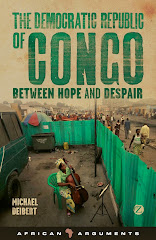When I heard this summer that Newsday, a newspaper I often write for, was closing its bureaus in Beirut and Islamabad after the scheduled terms of correspondents Mohamad Bazzi and Jim Rupert expire over the next two years, I felt again another sensations of the fingers of the bottom line tightening around the throat of responsible, authoritative, on-the-ground coverage as it appears in America's newspapers. Newsday's move is by no means unique. The Tribune Co., Newsday's corporate owner, is also closing down the Moscow and Johannesburg bureaus of The Baltimore Sun over the next two years, following the shelving of the paper's Beijing and London bureaus last year. The Miami Herald, which likes to regard itself at the last word on Latin America and is owned by McClatchy (which consumed Knight Ridder's foreign bureaus earlier this year), now attempts to cover all of South America with only one staff correspondent, the able Steve Dudley, based in Bogota, and two freelancers, in Caracas and Lima.
In fact, a recent article by Sherry Ricchiardi in the American Journalism Review noted that, when war erupted between Israel and Hezbollah guerrillas in Lebanon this past summer, The Washington Post was forced to fly in correspondent Edward Cody from his Beijing headquarters to help cover the violence, McClatchy ordered in reporters from Cairo, Nairobi, and Fort Worth, Texas and the New York Times sped Hassan Fatah in from Dubai. Forced with Tribune Company demands that he make deep cuts in the paper's reportorial and editorial staff, Los Angeles Times editor Dean Baquet publicly opposed the cuts, saying they would betray the public-service aspect of journalism in keeping readers informed, and promptly found himself out of a job.
It seems to me that, beyond any reasonable doubt, the bottom line is decimating print journalism at a moment when, as much as any in our history, Americans need to be informed about what is going on in the world. Locally-based reporters in regions such as the Middle East and Latin America are increasingly disappearing except for outposts manned by Reuters and The Associated Press and, as such, American readers are being deprived of valuable insight that can only come from reporters on-the-ground, speaking the local language with an intimate knowledge of the key players and flavour for the flow of events that one simply cannot get by jetting in somewhere a few times a year. Expecting someone to cover all of Latin America from a base in Mexico City, the entire Middle East from a base in Jerusalem or all of Europe from a base in London is by any measure an unfair proposition, no matter how gifted a journalist is. The idea that seems to have gained currency with large chains such as Tribune and McClatchy is that one or perhaps two correspondents in each region will be enough to supply all of the newspaper's in that chain distribution with coverage. With the world in great upheaval and incipient crises bubbling up in countries as diverse as Egypt, Nepal, Nigeria, Pakistan, Somalia, Sri Lanka, Sudan, Thailand and Uzbekistan (by no means an exhaustive list) in addition to the front page stories of Iraq, Iran and North Korea, who is going to pick up the slack when conflict occurs in these regions? The thinly-stretched and overworked wire services, who (and I speak from personal experience, having worked for Reuters in Haiti from 2001 until 2003), at the most generous, are allotted perhaps 700 words for their stories? Freelancers (again I speak from experience) who get paid a pittance for risking their lives and are often left scrambling just to afford the basics - phone cards, transportation, internet - that their profession demands? The newish crowd of activist/journalists for whom the truth and hard-nosed, skeptical, objective reporting seems to take a back seat to trying to further whatever political bandwagon the correspondents in any given country have momentarily hitched themselves to? Not likely, folks.
It is only by reconsidering their massive downsizing of their competent, able staffs that chains like Tribune and McClatchy can do justice to the proud traditions of international reporting that papers like Newsday and The Miami Herald have. The reason newspapers have for existing in the first place is to inform the public about the world around them, and they should be willing to pay for a variety of voices to be in the field in order to do so. As much as I have seen violent political currents succeed in stilling independent media voices in places in Brasil, Guatemala and Haiti, I fear that particularly ruthless and short-sighted business dealers will succeed in doing the same to foreign coverage in the United States, that is, narrowing the voices providing foreign coverage to American readers to an ever-decreasing few, a formula which would seem to spell trouble for the very bottom line those same individuals claim to protect.
One independent journalist who has managed to make a difference, my friend Nomi Prins, will be reading from her book Jacked: How "Conservatives" are Picking your Pocket (Whether you voted for them or not), published by PoliPointPress, at the Housing Works Bookstore Café at 126 Crosby Street on Thursday here in New York. I myself will be attending the lecture/book signing for my friend and colleague Jonas Bendiksen's new book, Satellites - Photographs from the Fringes of the Former Soviet Union at the Aperture Foundation that night, but both events are highly worth checking out.
Oh, and Lula is back for another four years.
Monday, October 30, 2006
Subscribe to:
Post Comments (Atom)




No comments:
Post a Comment